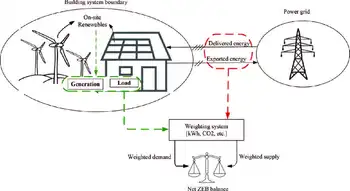EVs are here – are the grids ready?
By Reuters
Electrical Testing & Commissioning of Power Systems
Our customized live online or in‑person group training can be delivered to your staff at your location.

- Live Online
- 12 hours Instructor-led
- Group Training Available
Industry watchers question the ability of power grids to cope with the influx of electric vehicles EVs, even though they are likely to remain, at least at first, a fraction of the total new car market.
French carmaker Renault, which with its Japanese alliance partner Nissan is investing 4 billion euros US $5.5 billion in electric cars, strengthened its EV partnership with French utility EDF.
At a news conference on Renault's stand at the Paris Auto Show displaying the Fluence and Kangoo EVs and the electric Dezir concept car, the partners launched pilot projects on battery testing and management and on charging infrastructure.
EDF CEO Henri Proglio said he was confident of having the capacity to meet electricity needs of EVs.
He laughed off questions about whether EDF planned to increase prices to take advantage of extra demand at night — drivers are expected to charge their cars overnight.
"There will be tariffs that, on the contrary, allow customers to benefit from off-peak hours. There are no plans to optimize the company's P&L by increasing prices," he said.
Carlos Ghosn, chief executive of Renault and Nissan, had said on Thursday he now thought his forecast that 10 percent of new car sales by 2020 would be EVs was "conservative," while many manufacturers and analysts see much smaller demand.
Dominique Maillard, head of French electricity grid RTE, told Reuters before the show that if large numbers of drivers chose not to charge up overnight there could be problems.
"This new EV demand will help fill up and balance the network during off-peak periods," he said.
"On the other hand, if all drivers use quick charging in the daytime — carmakers' most attractive sales argument to ease range anxiety — the network will not hold up and it will definitely be necessary to reinforce it to get through peak points."
Thierry Koskas, head of Renault's EV project, said that a hypothetical two million electric cars on the road in France in 2020 — quite an ambitious figure — would represent 0.05 percent of electricity consumption in France.
"What needs to be avoided are cars being charged during peak demand hours, for example 6 p.m. on a winter evening. That can be worked on, it's not very complicated," he said.
Victor Muller, CEO of Saab owner Spyker, which is making 70 e-power EVs for a test program, told Reuters: "The grid in the United States in many areas is so completely outdated that you could see serious problems arising."
Getting enough charging points in place so drivers can be free from "range anxiety" will be key, Muller added.
"It's one thing to know you can do 50 km 30 miles and you'll be without power. It's another if you don't know where to get power when you get there. You don't have that problem with a fuel engine. You'll always get someone to get you a jerry can of fuel and you can make it," Muller said.
Saab CEO Jan Ake Jonsson said manufacturers would also have to make sure prices for zero-emission cars were competitive.
"The price tag at the moment is high. I would say it has to come to that of a normal combustion engine. If it doesn't, customers are not going to pay for it unless there are tax schemes and tax benefits."
Renault and Nissan offer electric vehicles only in markets that get government support, at least initially.
Nissan showed its Leaf hatchback at the show. It is due to go sale in some European markets costing around 30,000 euros including state incentives, depending on the country.
Tesla Motors Chief Executive Elon Musk said EV plans would still be feasible without state incentives.
"Even if there were zero government support I think Tesla would still be viable but our pace of progress would be much slower," he told Reuters.
But Fiat Chief Executive Sergio Marchionne said: "I'm unconvinced today that we have the economic model to drive the cost structure down to the point that becomes economically viable for us as carmakers to become mass producers of EVs."
Carmakers are counting on EVs to help meet stricter emissions rules and to give them a leg up in markets that remain patchy, as September sales figures confirmed.











